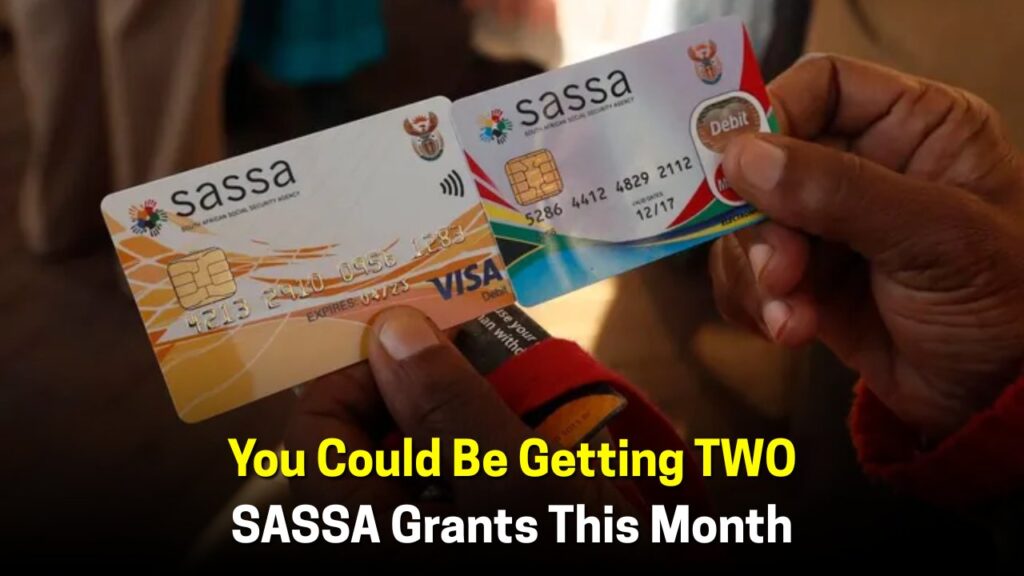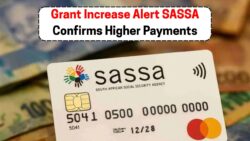SASSA Double Payouts: In an unprecedented move, the South African Social Security Agency (SASSA) has announced a new scheme offering double payouts to eligible beneficiaries. This initiative has sparked interest across the country as citizens explore the potential of receiving two grants simultaneously. The program is a part of the government’s ongoing efforts to provide additional financial support to vulnerable groups amidst economic challenges. Understanding the specifics of this scheme is crucial for those who rely on these grants as a primary source of income.

Eligibility for SASSA’s Double Grant Payouts
Many South Africans are eager to discover if they qualify for SASSA’s double grant payouts. To be eligible, applicants must meet specific criteria set by the agency. Primarily, the program targets those already receiving grants, such as the Child Support Grant, Old Age Pension, or the Disability Grant. Additionally, individuals must demonstrate a critical need for financial assistance, often assessed through means testing. This means that applicants should provide proof of income and household needs to justify their claim. The government aims to ensure that the aid reaches those who genuinely need financial support to cope with daily expenses. This double payout initiative is not a blanket offer but a targeted strategy to alleviate poverty and improve living conditions for the most vulnerable. Interested individuals are encouraged to visit SASSA’s official website or their local offices for more detailed information and application procedures.
How to Apply for Two Grants from SASSA
Applying for double payouts through SASSA involves a straightforward process, yet it requires careful attention to detail. Applicants must first verify their eligibility by reviewing the requirements listed on SASSA’s website. Once eligibility is confirmed, the next step is gathering the necessary documentation, which includes identity documents, proof of residence, and income statements. These documents are crucial as they substantiate the applicant’s claim to the additional financial support. The application can be submitted online via the SASSA portal or in person at local SASSA offices. It is advisable to keep copies of all submitted documents and to note any reference numbers provided during the application process. SASSA officials are available to assist applicants and provide guidance throughout the process. However, due to high demand, applicants should be prepared for potential delays in processing times. Staying informed and proactive in following up on the application status is recommended to ensure a successful outcome.
Understanding the Impact of SASSA’s Double Payouts on Beneficiaries
The introduction of double payouts by SASSA is poised to have a significant impact on beneficiaries across South Africa. For many, this additional financial support could mean the difference between meeting basic needs and facing severe economic hardship. The funds are intended to help cover essential expenses such as food, healthcare, and education, which are critical components of improving quality of life. By providing this extra layer of support, SASSA aims to empower individuals and families to rise above poverty levels. Moreover, this initiative reflects the government’s commitment to addressing socio-economic challenges and promoting equitable access to resources. Analysts suggest that while the double payouts are a temporary measure, they may pave the way for more permanent solutions to financial insecurity in the future. The program’s success will likely be measured by the positive changes it brings to the lives of beneficiaries and the broader impact on community well-being.
Challenges and Future Prospects of the SASSA Double Grant Initiative
Despite the potential benefits of SASSA’s double grant initiative, several challenges must be addressed to ensure its success. These include the administrative burden of processing a large volume of applications and the risk of fraudulent claims. SASSA has implemented strict verification processes to mitigate these issues, but the agency acknowledges the need for continuous improvement. Another challenge is ensuring that all eligible individuals are aware of the program and know how to apply, particularly in rural and underserved areas. Outreach programs and partnerships with community organizations are vital to spreading awareness and providing assistance to those who may face barriers to accessing information. Looking forward, the success of this initiative could set a precedent for future social support strategies in South Africa. By carefully evaluating the outcomes and addressing any shortcomings, SASSA and the government can develop more robust frameworks for supporting vulnerable populations. This initiative represents a step towards a more inclusive and supportive social welfare system, with the potential to transform lives and communities.




